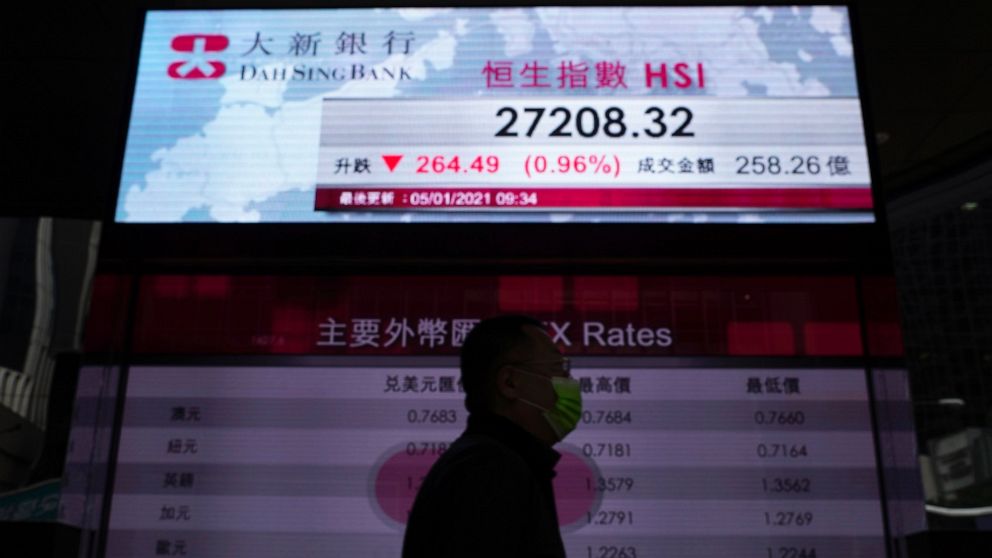US stocks push higher, recover some of their sharp losses
U.S. stocks are pushing higher Tuesday, recovering some of their sharp losses from the day before
NEW YORK — U.S. stocks are pushing higher Tuesday and recovering some of their sharp losses from the day before.
The S&P 500 was 0.4% higher, a day after the worsening pandemic and potentially market-moving Senate elections sent the index tumbling 1.5%. The Dow Jones Industrial Average was up 132 points, or 0.4%, at 30,354, as of 9:50 a.m. Eastern time, and the Nasdaq composite was 0.6% higher.
In a reversal from the day before, gains were widespread across the market. Roughly four out of five stocks in the S&P 500 were rising, with oil producers leading the way as crude prices strengthened.
Two runoff elections are getting underway in Georgia that will determine which party controls the Senate, and analysts say the results could mark clear winners and losers in the stock market.
The general thinking is that a Democratic sweep would open the door to higher tax rates, tougher regulation on businesses and other potentially profit-crimping changes from Washington. That would put broad pressure on the stock market, with Big Tech stocks potentially getting particularly more regulatory scrutiny.
But Democratic control of the Senate, White House and House of Representatives could also make another dose of big financial support for the economy more likely. Democrats have lobbied for $2,000 cash payments to go to most Americans, for example, and they could push for more spending on infrastructure projects.
Such stimulus could eventually lead to higher inflation across the economy, something that has been largely nonexistent for years. Increasing inflation expectations have helped buoy Treasury yields recently, and the yield on the 10-year Treasury rose to 0.93% from 0.90% late Monday.
Beyond Georgia and Washington, though, the worsening global pandemic continues to weigh on markets. A new, seemingly more contagious variant of the coronavirus is pushing countries to announce or consider more restrictions on businesses. That’s threatening Wall Street’s widespread belief that financial support offered by central banks and governments can keep the economy afloat until a big recovery sweeps the world later this year due to the rollout of COVID-19 vaccines.
Worries are also rising that markets have simply stormed too high since hitting bottom early last year and are setting investors up for big disappointment.
“The long, long bull market since 2009 has finally matured into a fully-fledged epic bubble,” the famed value investor Jeremy Grantham wrote in a recent report. “Featuring extreme overvaluation, explosive price increases, frenzied issuance, and hysterically speculative investor behavior, I believe this event will be recorded as one of the great bubbles of financial history, right along with the South Sea bubble, 1929, and 2000.”
Grantham has correctly predicted big market downturns in the past, including the dot-com bust and the collapse of Japanese stocks in the 1990s. But he acknowledges that his calls have sometimes been early: He began selling stocks in late 1997, for example, only for the dot-com bubble to keep inflating until 2000.
In overseas stock markets, Asian indexes were mostly higher. South Korea’s Kospi rose 1.6%, Hong Kong’s Hang Seng added 0.6% and stocks in Shanghai gained 0.7%. Japan’s Nikkei 225 fell 0.4%.
In Europe, France’s CAC 40 fell 0.4%, and Germany’s DAX lost 0.4%. The FTSE 100 in London rose 0.3%.
———
AP Business Writer Yuri Kageyama contributed.
![]()


